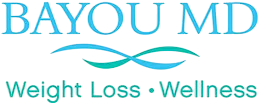Testosterone plays a critical role in maintaining youthful neurological structure, alleviating depression, as well as inducing fat loss in those who are unable to reduce body weight regardless of diet and exercise.
Recent studies have demonstrated that low testosterone in men is strongly associated with metabolic syndrome, type 2 diabetes, cardiovascular disease, and an almost 50% increase in mortality over a seven year period.
Restoring testosterone to youthful ranges in men can result in an increase in insulin sensitivity as well as a reduction in total cholesterol, fat mass, waist circumference and pro-inflammatory cytokines associated with atherosclerosis, diabetes, and the metabolic syndrome. Testosterone therapy can also significantly improve sexual desire and improve functional capacity.
Testosterone is a hormone, a molecular messenger that travels through your bloodstream to act on many organs and tissues in your body, including your brain, muscles, fat, bones and sexual organs.
Your thinking abilities and general sense of well-being, including your mood, energy level and sense of vitality, and sexual drive or libido are all affected by testosterone.
Testosterone creates muscle cells and causes them to grow in size and strength.
Testosterone has been shown to reduce body fat, particularly in the midsection and chest. The result is an improvement in lean body mass.
Testosterone helps prevent the normal bone destruction of aging and actually improves bone density. This reduces the risk of osteoporosis and fractures.
Testosterone can influence cardiovascular risk factors indirectly through its effect on the amount of fat in your body, and there is evidence it benefits the heart directly. It may help open the coronary arteries, and possibly improve cardiac function in people with heart disease and heart failure.
Low testosterone can reduce your ability to have satisfying sex. Lack of sex drive and erectile dysfunction are sexual problems that can result from low testosterone. If low testosterone is the cause, treating it can help.
Do I Have Low Testosterone?
Because testosterone affects so many organs and tissues, low levels are associated with many signs and symptoms throughout the body.
Symptoms you may experience but cannot be adequately measured include:
● Irritability or unexplained negative mood.
● Loss of motivation.
● Anxiety or increased pessimism.
● Increased fatigue, low energy or diminished sense of well-being.
● Difficulty concentrating, lack of focus, forgetfulness and loss of memory.
● Feeling that you have lost your edge or passed your peak.
● Insomnia or poor sleep.
● Joint pain.
● Lacking desire (low libido) or pleasure in sex.
● Decreased ability to perform sexually.
● Erections that are less strong.
None of thesee signs or symptoms are specific to testosterone deficiency and many are hard to differentiate from normal aging. Our role is to evaluate any signs or symptoms of low testosterone, and then to see how they correlate with your hormone levels.
Pellet therapy can be an effective treatment option for sustained hormone levels*. It takes estrogen and testosterone hormones from natural plant sources to replicate your body’s normal levels.
The pellets are 100% natural and are smaller than a grain of rice. They are simply inserted into the fatty tissue underneath the skin to begin releasing hormones into the bloodstream. The pellet implantation is performed quickly and easily in the office. Start with a free consultation to see if this type of therapy is right for you.
*Individual results may vary based on your meeting with the doctor.

Physical
● Increased energy
● Increased bone density
● Reduced risk of obesity, diabetes and metabolic syndrome
● Reduced risk of cardiovascular disease
● Reduced risk of osteoporosis
● Reduced body fat
● Reduced risk of anaemia
● Increased lean body mass and muscle strength
Sexual
● Increased libido
● Increased sexual enjoyment
● Increased satisfaction with erections
● Increased sexual activity
Psychological
● Improved mood and sense of wellbeing
● Improved cognition and memory function
The Importance of Hormone Testing
Millions of aging men have the dual conditions of low testosterone and high cholesterol. Many physicians prescribe cholesterol-lowering drugs to reduce cholesterol, when, in fact, the age-related rise in cholesterol might simply be the body’s way of increasing hormone levels by supplying the raw materials necessary to make hormones.
The so-called “normal” levels of testosterone in older men reflect population averages. We believe that most aging men would prefer not to accept the loss of youthful vigor as normal. Instead, we suggest that a more valid optimal level for all men would be in the reference range used for men aged 21 to 49 years, and that any supplementation should aim to restore hormone levels to that range.
When measuring testosterone levels, it is critical to determine the levels of both free and total testosterone to understand the cause of any observed symptoms of deficiency.
It is also important to remember that blood levels of both free and total testosterone vary widely among individuals, making it difficult to establish a general baseline on which to prescribe a standardized treatment protocol. However, levels are quite consistent within individuals, and thus it is important that men have multiple tests over time to determine trends and individual thresholds for treatment.
Finally, during the initial testing, it is also imperative to test estrogen levels. Many of the unwanted effects of male hormone imbalance are actually caused by an elevated estrogen level relative to low testosterone levels (the estrogen/testosterone ratio).
Dehydroepiandrosterone (DHEA) is a hormone produced from cholesterol that then follows one of two pathways, both involving two-step enzymatic conversions, to yield either estrogens or testosterone. Thus, levels of DHEA can have a role in determining levels of estrogen and testosterone, though DHEA alone is seldom enough to sufficiently restore testosterone levels in aging men.
One of the most important factors that affect testosterone levels and the ratio between testosterone and estrogen is the aromatase enzyme. Aromatase converts testosterone to estrogen, further depleting free testosterone levels and increasing estrogen levels.
Obesity and associated hyperinsulinemia suppress the action of luteinizing hormone (LH) in the testis, which can significantly reduce circulating testosterone levels, even in men under the age of 40. In addition, increased belly fat mass has been correlated with increased aromatase levels.
The vicious circle of low testosterone and obesity has been described as the hypogonadal/obesity cycle. In this cycle a low testosterone level results in increased abdominal fat, which in turn leads to increased aromatase activity. This enhances the conversion of testosterone to estrogens, which further reduces testosterone and increases the tendency toward abdominal fat.
Most testosterone circulating in the bloodstream is bound to either sex hormone-binding globulin (SHBG) (60%) or albumin (38%). Only a small fraction (2%) is unbound, or “free”.
Testosterone binds more tightly to SHBG than to albumin. Consequently, only albumin-bound testosterone and free testosterone constitute the bioavailable forms of testosterone, which are accessible to target tissues and carry out the actions of the essential hormone. Thus the bioavailability of testosterone is influenced by the level of SHBG.
Aging men experience both an increase in aromatase activity and an elevation in SHBG production. The net result is an increase in the ratio of estrogen to testosterone and a decrease in total and free testosterone levels. It is crucial that this skewed ratio be balanced.
The liver is responsible for removing excess estrogen and SHBG, and any decrease in liver function could exacerbate hormonal imbalances and compromise healthy testosterone levels. Thus it is important that aging men also strive for optimal liver function.
Testosterone may be administered, when clinically appropriate, through 1 of 3 different methods, depending on the patient’s needs: intramuscular injections, transdermal applications or pellet therapy
Testosterone Cypionate is given by injection once every 7 to 14 days. Dosing is dependent on your age, testing results and symptoms. The testosterone injections we prescribe are only manufactured by FDA-Approved manufacturers. Testosterone injections are given in our clinics or you can self-inject at home.
Testosterone is applied to the skin using a gel or cream on a daily basis. The concentration of testosterone in the blood goes up within a few doses.
Insertion is a simple in-office procedure and is less painful than drawing blood. Our doctor applies local anesthesia and makes an incision in the upper hip area, placing the pellet inside, which is the size of a grain of rice. No stitches are necessary – the incision is so small, it can be closed up with a piece of tape.
Your initial Total Testosterone blood test and and consultation with our provider are free. If your initial test and consultation show that you are a candidate for our Low Testosterone therapy, we will have you complete an extensive testing panel and an in-depth consultation with our provider about your course of treatment. The cost for this visit is included in our monthly cost.
We require patients to pay for their treatment at the time of service. We accept major credit cards, debit cards, cash, flex and HSA cards. We also accept Care Credit which offers NO INTEREST payment plans to those who qualify.
We do not accept insurance at this time. However, upon request, we will provide you with a form that gives you the proper codes to submit to your insurance company. Any insurance reimbursement will go directly to you.

Request an appointment with us online or call our office.
Navigation
Created by ForaziTech